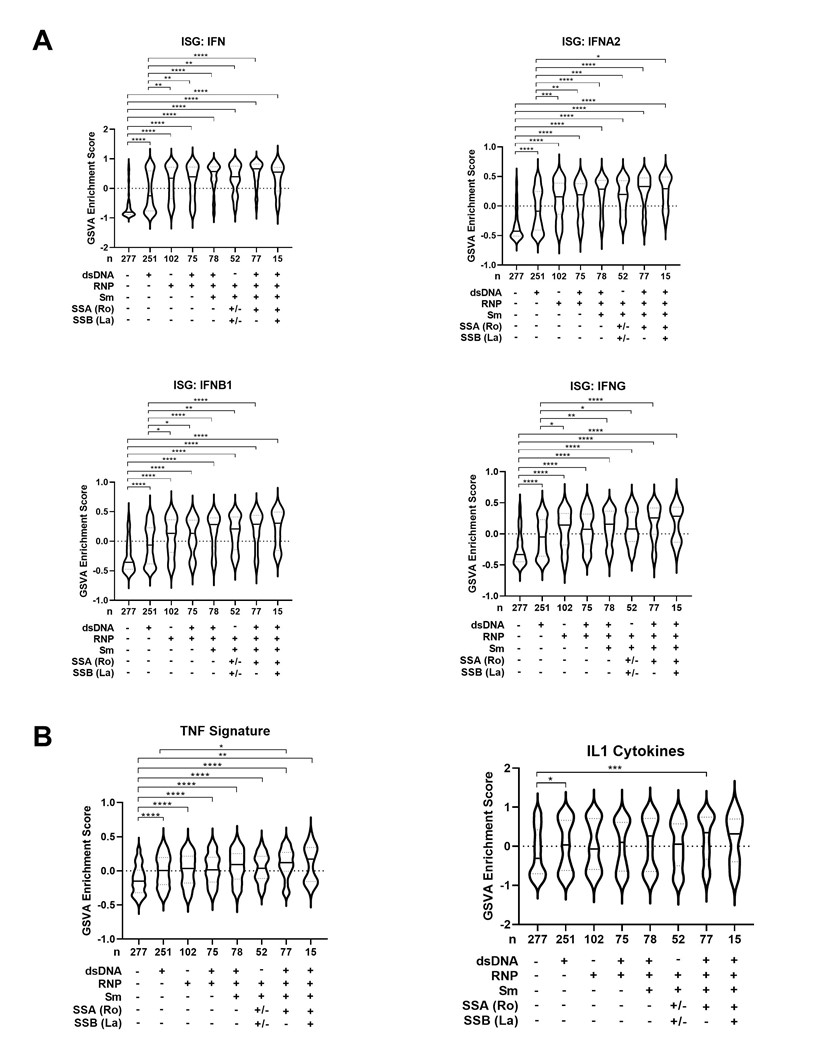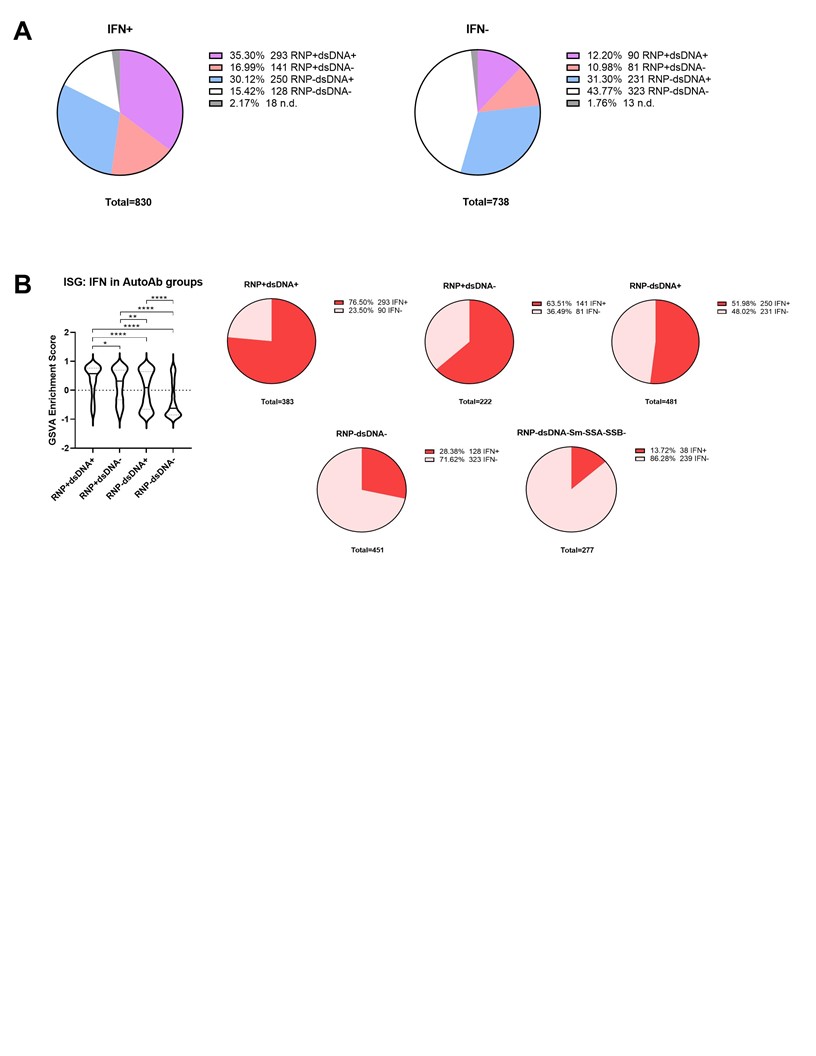Session Information
Session Type: Poster Session D
Session Time: 8:30AM-10:30AM
Background/Purpose: Anti-nuclear antibodies are important serologic features of SLE and facilitate diagnosis. Anti-double stranded DNA (dsDNA) antibodies are routinely monitored for disease prognosis and are related to complement consumption, with immune complex deposition in the kidneys causing tissue damage. Relatively less is known about autoantibodies against RNA binding proteins (RBP) and about the relationship between either autoantibody and expression of the interferon (IFN) stimulated gene (ISG) signature. Extensive laboratory measurements from 2 clinical trials of tabalumab in SLE (ILLUMINATE 1&2) allowed analysis of the relationships between autoantibody levels, ISG expression, and complement (C) C3 and C4 levels.
Methods: Microarray data from 1620 active (SLEDAI≥6), female SLE patients and accompanying laboratory measurements were analyzed (GSE88884). All patients satisfied ≥4 of the 1997 ACR classification criteria. Gene Set Variation Analysis (GSVA) was carried out to determine enrichment of the ISG signature in each patient. Linear regression analysis was used to determine relationships between ISG GSVA scores and C3 and/or C4 levels as well as autoantibody levels. Unbiased classification and regression trees (CART) were constructed to determine the highest predictors of ISG expression.
Results: Patients were stratified by autoantibody positivity. Comparison of GSVA scores of the core IFN signature, shared by type I and type II IFNs, demonstrated that SLE patients positive for anti-ribonucleoprotein (RNP) antibodies alone had greater enrichment of ISG than those positive for anti-dsDNA alone (Figure 1). Similar results were noted for gene signatures of type I IFN, IFNα2, IFNβ, and IFNγ. In contrast, the TNF gene signature was observed comparably in patients with anti-dsDNA or anti-RNP antibodies and the IL-1 signature was only observed in those with anti-dsDNA. By linear regression, IFN GSVA scores and C3 and C4 levels were significantly, inversely related in patients with anti-dsDNA antibodies but not those with anti-RNP antibodies. Antibody levels correlated with decreased C levels in dsDNA+ patients. Additionally, ISG GSVA scores were increased in anti-dsDNA+ patients with low C3 or C4 compared to anti-dsDNA+ patients with high/normal C, but there was no significant difference in ISG expression in anti-RNP+ patients with the same stratification. CART analysis identified anti-RNP status was the highest predictor of ISG GSVA score. Finally, 56.2% of SLE patients without an ISG signature exhibited autoantibodies, but only 13.7% of SLE patients negative for autoantibodies expressed the ISG signature (Figure 2).
Conclusion: Taken together, these data indicate that anti-RNP antibodies are associated with ISG expression more strongly than anti-dsDNA antibodies, but are not related to the depression of C3 or C4. Furthermore, ISG expression is not required for autoantibody production, but autoantibodies are likely directionally related to the ISG signature.
 Figure 1. ISG (A) and other inflammatory cytokine (B) enrichment in SLE patients with various autoantibodies. Violin plots display median values of GSVA enrichment (solid lines) and upper and lower quartiles (dashed lines). *p < 0.05; **p < 0.01; ***p < 0.001; ****p < 0.0001 by Dunn's multiple comparisons test.
Figure 1. ISG (A) and other inflammatory cytokine (B) enrichment in SLE patients with various autoantibodies. Violin plots display median values of GSVA enrichment (solid lines) and upper and lower quartiles (dashed lines). *p < 0.05; **p < 0.01; ***p < 0.001; ****p < 0.0001 by Dunn's multiple comparisons test.
*p < 0.05; **p < 0.01; ***p < 0.001; ****p < 0.0001
To cite this abstract in AMA style:
Hubbard E, Pisetsky D, Lipsky P. Association Between Anti-RNP Antibodies and Interferon Gene Expression but Not Complement Consumption in SLE [abstract]. Arthritis Rheumatol. 2021; 73 (suppl 9). https://acrabstracts.org/abstract/association-between-anti-rnp-antibodies-and-interferon-gene-expression-but-not-complement-consumption-in-sle/. Accessed .« Back to ACR Convergence 2021
ACR Meeting Abstracts - https://acrabstracts.org/abstract/association-between-anti-rnp-antibodies-and-interferon-gene-expression-but-not-complement-consumption-in-sle/

